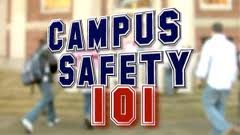1. ParentsCountdowntoCollegeCoach.com–You will find the MOST information here on our blog: college guidance, college planning, college coaching, and college news. Come here first to find the latest and best tools to help you navigate the college maze.
2. UniversityParent.com–A site where parents can ask questions, gather information, and download and view college guides and campus newsletters.
3. Fastweb.com–An extensive scholarship search website with a massive database of scholarships, along with articles and helps designed specifically for parents.
4. Zinch.com–A free service for students and parents where students can showcase themselves, connect with colleges, and search for scholarships.
5. Cappex.com–A site created for students to help them simplify their college search, create a profile and search for scholarships.
6. MeritAid.com–The place to go to find merit scholarships and academic scholarships from colleges across the country.
7. SmartCollegeVisit.com–Created to provide information about college visits, help parents and students plan, and view personal accounts from both parents and students.
8. MyCollegeCalendar.org–Interactive college admissions counseling program designed for both high school students and their parents.
9. Scholarships.com–An extensive scholarship search engine that helps you search and schedule alerts for deadlines.
10. MyUSearch.com–An excellent blog with tips for parents and students about college; also provides college matching and scholarship searches.
11. FindTuition.com–Help finding money to pay for college, along with articles related to college financing.
12. EntrepreneurEdu.org–This is an excellent resource for students who are interested in colleges who offer entrepreneurial programs.
13. TutorsForTestPrep.com–An SAT expert and coach offering tips to help your college-bound teen improve their SAT/ACT scores.
14. Bookrenter.com–Rent college textbooks and save up to 75% over purchasing them new.
15. TheCollegeSolutionBlog.com–An excellent resource for college-bound teens and their parents: admissions, testing, and financial aid.
16. UniversityLanguage.com/blog–Great blog articles about everything related to college admissions geared toward students.
17. CollegeWeekLive.com–A virtual college fair that sponsors free LIVE events with archived presentations, student chats, and college booths.
18. BetterGrads.org–A network of college student peer advisers and a resource filled website presenting honest accounts of the college experience geared toward high school students.
19. Youniversitytv.com–Learn about colleges by watching video tours, chat with students on campus forums, post questions and get answers.
20. NYTimes-TheChoiceBlog–Demystifying college admissions and financial aid by providing articles and Q&A by experts in the field.
21. GreatCollegeAdvice.com/blog–An excellent resource about the college admissions process providing expert advice helping students map their college journey.
22. USNews.com/Education–The education channel of U.S. News and World Reports providing the latest news and information related to college.
23. Fafsa.ed.gov–The official government website for the Free Application for Federal Student Aid.
24. CommonApp.org–The common application site used by 400 colleges and universities across the country.
25. PrincetonReview.com–The best value colleges list for public and private institutions across the country.
26. NCSASports.org–The college recruiting site for athletes.
27. FairTest.org–The site for the National Center for fair and open testing providing information about colleges who do not use the SAT/ACT for admissions decisions.
28. SallieMae.com/plan–A FREE education investment planner that will help determine college costs, compare college costs, and provides information about student loan repayments.
29. UPromise.com–UPromise partners return a portion of eligible purchase money back to you. Those earnings accumulate in your Upromise account until you decide to use it to invest in a 529 plan, help pay down eligible student loans or assist with college expenses—all tax-free!
30. SavingForCollege.com–Everything you need to know about financing a college education.
31. CollegeBoard.com–It’s here you’ll find the CSS Profile application (required by many private colleges), register for the SAT, and read articles about planning for college.
32. CollegeBasics.com–An excellent resource for information about college essays, college applications and high school resumes.
33. InsideHigherEd.com/blogs–Several different blogs related to higher education.
34. CollegeXpress.com–A search site that groups colleges in categories and provides college “hot” lists (i.e. top college for late bloomers, colleges for students needing a second chance)
35. ECampus.com–Find textbooks, sell textbooks, search for college supplies and college apparel all on this one site.
36. TheRealCollegeGuide.com–Four blogs about college life: the dorm, lifestyle, academics and heath and fitness.
37. DesignYourDorm.com–A free online, interactive resource for designing and organizing your college-bound teen’s dorm room.
38. CollegeAdmissionsPartners.com/blog–An expert blog dedicated to helping students find the right college.
39. GradeFund.com—Students invite their friends and family to sponsor their drive for good grades. Sponsors choose grade levels and sponsorship amounts for each grade (as low as $5) to help students raise money for their college education.
40. CollegeParentCentral.com–A blog created to give parents useful information about college and the college admissions process.
41. Number2.com–Free online test prep (SAT/ACT) with vocabulary exercises and help.
42. VolunteerMatch.org–Find local volunteer opportunities for your college-bound teen and teach them about the importance of giving back to their community with the added bonus of adding that service to their high school resume.
43. KnowHow2Go.com–A college planning site for college-bound students providing helps and aids from middle school to senior year: interactive and fun!
44. BeRecruited.com–If you have a teen that’s a student athlete, they can create an online profile here and help colleges and coaches find them and be recruited.
45. FinAid.org–An excellent resource for the answers to all your questions regarding college financial aid.
46. TheCampusBuzz.com–An online clearinghouse for national college news; find all the college news in one place!
47. BigFuture.collegeboard.org–A planning tool to help parents and students get ready for college.
48. CollegeFocus.com/colleges–A virtual clearinghouse of blogs related to college life, parenting, college searches, etc.
49. Word-nerd.com–An PSAT/SAT vocabulary prep tool.
50. YourCollegeKid.com–A site with parent forums and other college prep tools.



